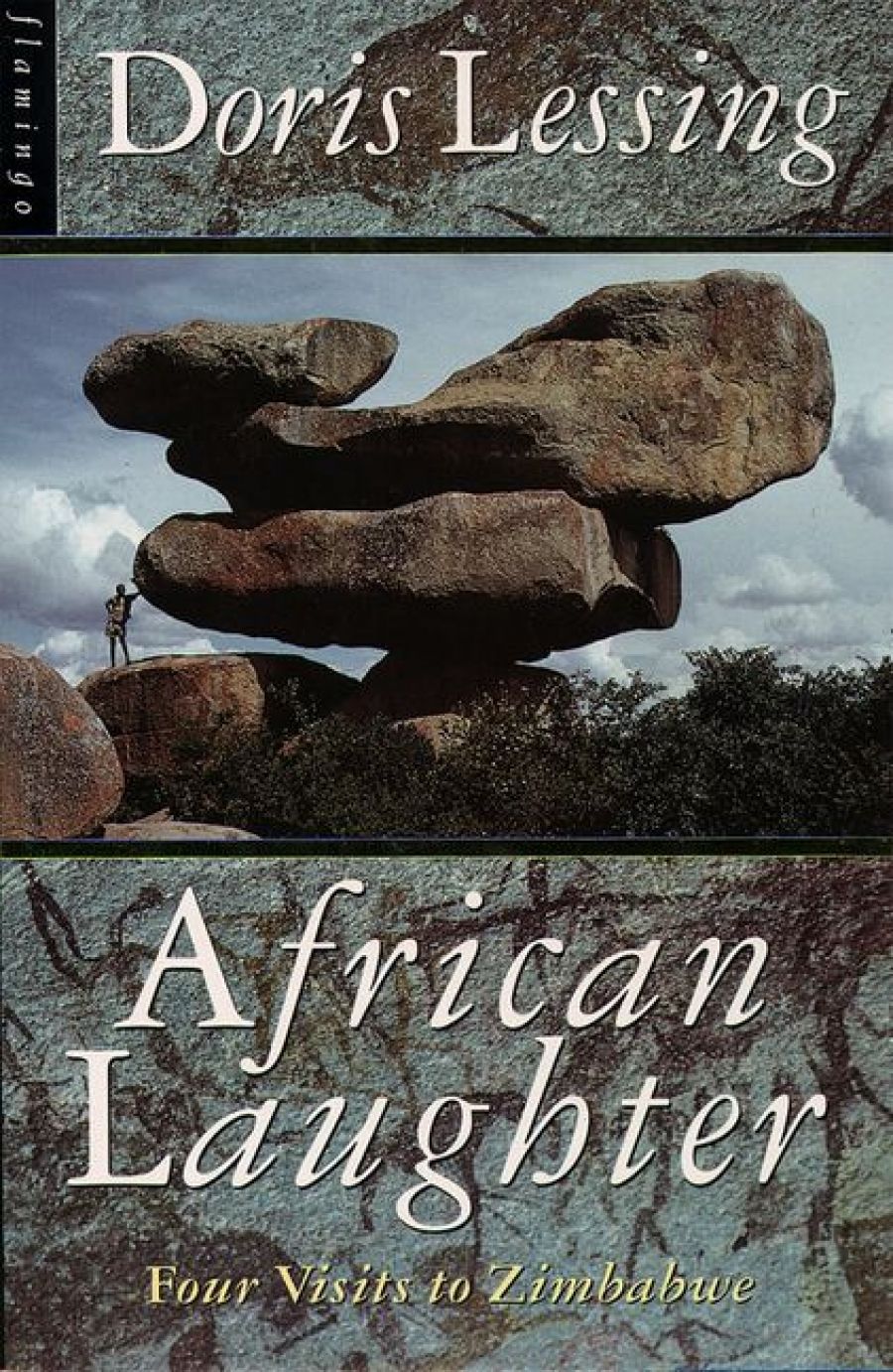
- Free Article: No
- Contents Category: Memoir
- Review Article: Yes
- Online Only: No
- Custom Highlight Text:
After twenty-five years of political exile, Doris Lessing returns to her homeland – once Southern Rhodesia, now Zimbabwe – following the 1980 Marxist revolution. African Laughter documents four visits spanning the first decade of black majority rule, providing an intimate view of the birth, progress, and growing pains of a comparatively successful modern African nation. African Laughter also chronicles Lessing’s personal journey, a search for the landmarks of her memories.
- Book 1 Title: African Laughter
- Book 1 Biblio: HarperCollins, $35 hb
It is as though one is with her on her visits and wanderings. Being who she is, she gains easy entrance to all circles of society from white landowners and the new black élite to the rural poor. The success of African Laughter may lie in Lessing’s intimacy balanced by keen objectivity, thus preventing the account from falling into sentimentality or bias. Her sympathy for the new black government is not without criticism of its corruption and policies. As for the whites even those with the best of intentions still tend towards paternalism in her eyes.
On her arrival two years after the revolution, Lessing witnesses the pains of transition. The whites bemoan their lower standard of living (only two servants now instead of seven). They rail against the inexperienced black leadership under Robert Mugabe. Blacks also feel let down by the new government. The promised jobs, schools, and land have yet to be realised. However, the situation changes swiftly and dramatically.
By 1988, Lessing finds Zimbabwe in full swing. Optimism and euphoria are pervasive. Mugabe has gained respect. A black élite has emerged, albeit an opportunistic one. Instead of racism, there is an apparent easy mixing of blacks and whites. Swedes, Americans, and Germans spend millions on developmental projects, for better or for worse.
In the countryside, Lessing visits makeshift schools and takes joy in travelling with an enthusiastic team who compile ‘how-to’ books for rural folk to improve their gardens and living conditions. Together, they take special interest in discussing and documenting women's changing role in society.
The period is not without its share of ills – the scourge of AIDS, the depletion of the soil. All the while, the South African threat looms with its efforts to destabilise Zimbabwe and neighbouring countries.
By the 1990s, Lessing has noted that enthusiasm has waned. The country is plagued with drought. The currency has been devalued. Disenchantment with Mugabe has become widespread. She ends the book on an uncertain note, with Zimbabwe in a position both precarious and pivotal.
African Laughter's value lies in its rich texture – in the smallest of details, in baring of hearts and souls – set against an overview of Zimbabwe's recent history. It instils in the reader the sense of having been there, of knowing the customs, landscape, concerns. It compels one toward further examination of this model African nation.


Comments powered by CComment